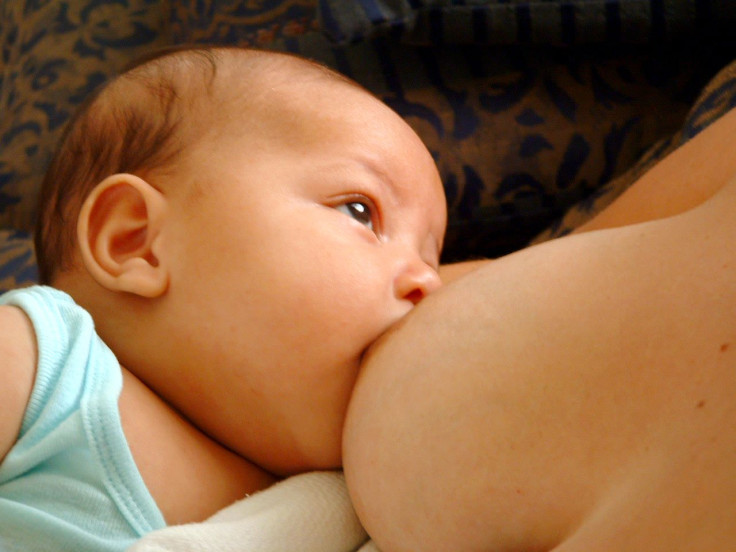For Breastfeeding Moms And Babies, Most Meds Are Safe, But Avoid Some Herbal Supplements, Pain Drugs, And Antidepressants

The American Academy of Pediatrics (AAP) has released its latest recommendations on which medications are safe for use while breastfeeding.
Issued every five to 10 years, the AAP’s guidelines clear up misconceptions over which drugs are dangerous and which are harmless. The report also addresses concerns over herbal remedies and substance abuse therapies, both of which have become more popular over the past decade.
Taking medications is sometimes necessary to ensure the health of a mother after childbirth; however, many families worry about the possibility of the infant being harmed via breastfeeding. Some doctors have a reflex policy of no drugs during breastfeeding, which the AAP describes as “often not based on evidence.”
“Information about the extent of drug excretion into human milk may be unavailable, and for many drugs, information is limited to data from animal studies, which may not correlate with human experience,” wrote Dr. Hari Cheryl Sachs, a fellow at the AAP who authored the report.
Not all drugs are excreted in human milk at a clinical level that could harm a child, while others may not pose a risk for the infant.
Sachs points out that drug labels are a great resource for worried moms. The Food and Drug Administration (FDA) has been working on a new policy since 2008 that requires meds to include pregnancy and lactation advice that is consistently revisied to reflect the latest data.
Sachs also highlights a new smartphone app from the National Institutes of Health — called LactMed — that lists the most up-to-date information on which drugs can be used while breastfeeding. Sachs continues by outlining the risks posed by various classes of medications. Here are a few highlights from the report, which is publically available:
The Three "A"s: Antidepressants, Antianxiety, and Antipsychotics
Despite an onslaught of research on these drugs over the past decade, Sachs points breast milk-related studies are lacking for one-third of psychoactive medications. In addition, the long-term consequences remain murky, although the following drugs have been detected in breast milk at clinically worrying levels.
Drug (common brand name)
- Bupropion (Zyban)
- Diazepam (Xanax)
- Fluoxetine (Prozac)
- Citalopram (Celexa)
Select serotonin reuptake inhibitors (SSRIs), antipsychotics, and other mood stabilizers tend to persist in the bodies of women, increasing the likelihood of entering the milk secretion glands. Overall, the AAP seeks counsel before breastfeeding while taking these meds, and doctors should take extra care to monitor the development of the child for any health consequences.
Some Herbs Are Harmful
Up to 43 percent of lactating moms, according to a Norwegian survey in 2004, take herbal medicines while breastfeeding, despite limited research on their pediatric benefits and consequences.
Few regulations are in place for herbal supplements, meaning their safety may depend upon the whims of the manufacturers, and the FDA has recalled herbal meds in the past due to toxic ingredients.
“The US Government Accountability Office found that 16 of 40 common herbal dietary supplements obtained from retail stores contained pesticide residues,” wrote Sachs, who also pointed out that kava and yohimbe have been directly linked to liver damage and fatalities, respectively, in children.
Even more standard supplements, like iron and vitamin D, should be taken at prescribed doses.
Vaccinations
Nearly all vaccinations are safe for nursing mothers, according to Sachs, with exceptions of those for small pox and yellow fever, which have been connected to rare cases of brain inflammation in kids.
The following vaccinations are considered safe by the AAP for both mother and child:
- Diphtheria and tetanus toxoids and acellular pertussis (DTaP)
- Inactivated poliovirus
- Hepatitis A
- Hepatitis B
- Influenza
- Human papillomavirus
- Measles-mumps-rubella (MMR)
Source: Sachs HC. The Transfer of Drugs and Therapeutics Into Human Breast Milk: An Update on Selected Topics. Pediatrics. 2013.
Published by Medicaldaily.com



























